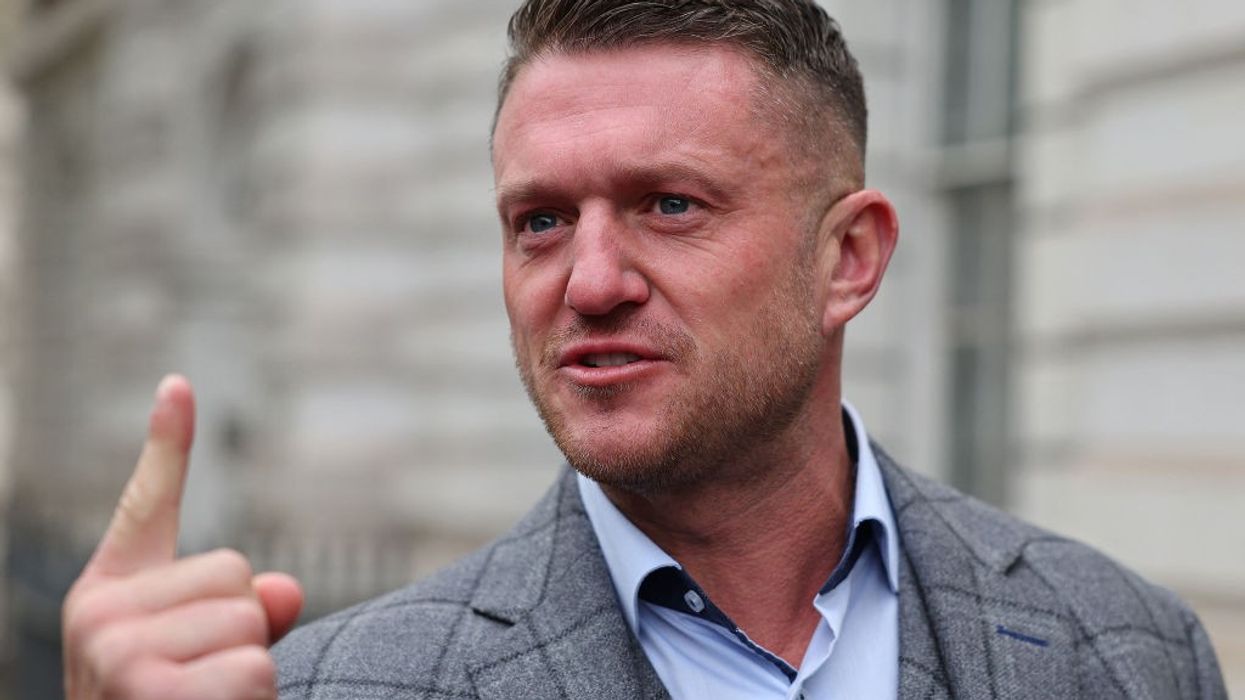TOMMY ROBINSON is a far-right agitator accused of helping stoke England's worst riots in over a decade -- seemingly from a sun lounger in Cyprus.
While anti-immigrant demonstrators have been chanting his name at disturbances over the past week, Robinson has been commenting on the protests from abroad through countless social media posts.
"As disorder spreads... don't say I didn't warn you," the 41-year-old said on X to his 900,000 followers last week.
The violence was sparked by false rumours online that the suspect behind the stabbing to death of three young girls was a Muslim asylum seeker.
Robinson -- real name Stephen Yaxley-Lennon -- has been a familiar sight at far-right rallies over the years, but the recent riots show he can still make his influence felt online after apparently leaving Britain to avoid a court order.
That ability is in large part due to his previously banned X profile being reinstated last year by the platform's billionaire owner, Elon Musk.
Robinson was filmed by AFPTV this week relaxing by a swimming pool at a five-star hotel in the Cypriot resort town of Ayia Napa.
Cyprus police said they believed Robinson was still on the island, and they have informed British authorities they are keeping an eye on him.
However, Robinson claimed Wednesday (7) that he wasn't there.
Born in November 1982, Robinson is one of Britain's most prominent anti-Muslim activists.
He first shot to prominence in 2009 when he helped found the now-defunct English Defence League in his hometown of Luton, north of London.
Many of its members were football hooligans. The group held frequent street demonstrations against Muslims and regularly clashed with anti-fascist demonstrators.
Robinson quit as EDL leader in October 2013, claiming he could no longer keep the group's "extremist elements" at bay.
While the group has declined into obscurity -- although offshoots remain -- Robinson has maintained a high profile.
He has a string of criminal convictions on charges including assault, fraud and drugs possession, and has severed several prison terms.
In 2018, he was sentenced to 13 months in jail for contempt of court in a case that saw ex-US president Donald Trump's former top adviser Steve Bannon take up Robinson's cause.
Last month, he organised a far-right protest in London in which nine people were arrested.
According to British media, Robinson left the country shortly afterwards, evading a court hearing related to contempt of court proceedings in the UK.
It is not clear when he will return to Britain and if the UK authorities will want to speak to him about the riots. He maintains that he has only called for peaceful protests.
Britain's director of public prosecutions warned Wednesday that social media influencers allegedly fuelling violent disorder would be extradited, but did not mention Robinson by name.
(AFP)





